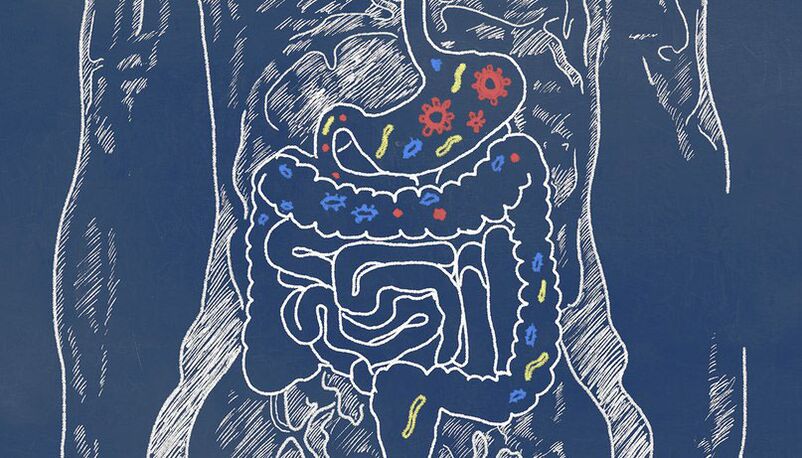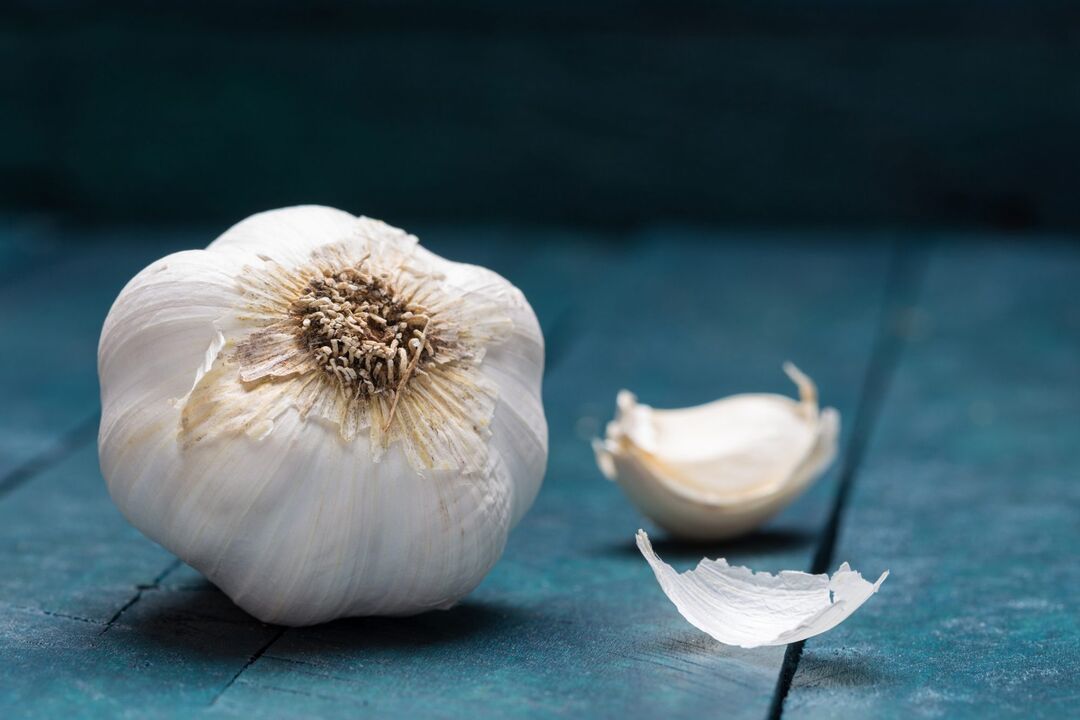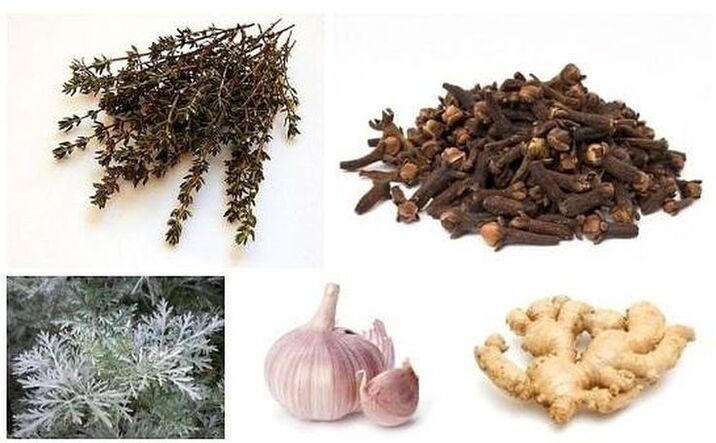Parasites are the simplest types of bacteria that live on and parasitize on the nutrients of another organism. They feed on finished organic matter produced by others.
There are currently more than twenty parasitic life forms that can live in the bodies of animals or humans.
All of them can enter our body and cause many diseases and infections. Very often, such bacteria are found in children because they do not have such high immunity while in contact with animals and some dirty things.
Remember a little kid often taking everything in his mouth?
These batteries may contain harmful parasites. This article describes the classification of parasites in the human body, how to treat infectious diseases, and what you need to do to prevent harmful bacteria from entering your body.
Parasitic bacteria in the human body, in which organs can they live?

The simplest bacteria are found in the human body and its skin, and can be unicellular or multicellular.
Parasites in the body are called ectoparasites. This species includes bugs, lice and similar scabies. Others are called endoparasites because they live in the human body. These include amoebas, worms, and insect larvae.
The latter are the most dangerous, while the former are simply unpleasant.
Internal parasites often cause serious illnesses and are harder to get rid of than external parasites. Medicine has already found many ways to get rid of it and also has extensive experience in treating parasites in the human body.
Each of the parasites has its own ideal place in the human body, where all the conditions are needed for the parasite to live, that is, the nutrients needed for growth and reproduction. Some of them may move during growth.
Endogenous parasites are most commonly found in the intestines, muscles, blood, lungs, heart, and liver. Some species even live in nerve tissue. Ectogenic parasites live on the skin.
How can parasites get into the body?
The first way is for bacteria to enter the body through food and water. Sometimes it is infected or contaminated, so the microorganisms start to multiply there. Insects such as flies and cockroaches also carry a number of harmful bacteria. Certain types of food are initially contaminated - raw fish or raw meat. Very often the meat of animals is infected with parasites, so man does not eat it raw.
The second is the contact household. In this case, the parasites are spread from humans, household items, or animals. Very often, infectious bacteria are carried by street animals — dogs, cats, birds, and rats.
The third is blood transfusion by mosquitoes. This is rare in the CIS countries, with infected mosquitoes most often living in hot countries. The fourth is the independent entry of certain insects into the human body. They pierce the skin and penetrate muscle tissue or blood and then go where they have the best living conditions.
What are the symptoms of parasites?
Parasites can cause completely different symptoms in the human body - from often imperceptible insomnia to skin formations. For example, ectoparasites often cause skin lesions and scabies. Endoparasites in the lungs often cause coughing. When they are in the gut, they may be disturbed by constipation, vomiting or diarrhea.
But common signs of human presence of parasites include insomnia, general fatigue, headaches, and sometimes allergic reactions. Folk remedies are very often used, but they are not always pleasant, for example, not everyone drinks a glass of sauerkraut with worms.
Consider the symptoms in the presence of different types of parasites:
- The most common parasites in humans are worms or tapeworms. They cause indigestion and stomach pain, irritability, insomnia and anxiety attacks, sometimes dizziness. They are fairly easy to recognize, we can see them in the stool, or we can get a positive test result for worm eggs;
- Then comes a rather dangerous parasite - the tapeworm. It often causes discomfort or pain in the abdomen, diarrhea, brutal appetite (eats a lot but does not gain weight), pain in the liver and the presence of worms in the stool;
- in the presence of worms, a person may experience anorexia, insomnia, nervousness, and itching in the anus.
Why are parasites dangerous?
They disrupt the functioning of the organs, causing inflammatory processes in the tissues and destroying them. They produce toxic substances that destroy the body.
A pest that parasites you can cause vitamin deficiency, general weakness, and loss of immunity in both adults and children. The presence of such a parasite in children is very dangerous as it greatly slows their development. Very often, it is difficult to get rid of the parasites in the body because they tend to adapt to their environment and do not want to leave their usual home.
How do we treat parasites?

To get rid of parasites, you must first see a doctor. It prescribes a certain medication or another, more natural cure.
There are also treatments with folk remedies, but it is recommended to do them in symbiosis with medicines.
medical treatment
Doctors have long found effective treatments for parasites in humans.
Some medicines are available as tablets, while others are available in other forms, such as liquids. Dosage is determined by your doctor only and cannot be done on your own. In addition, there are differences in the age of the patients for whom they are intended.
In the modern world, there is another way to cure parasites. It is called oxygen and has appeared relatively recently, performed only in hospitals under medical supervision. The patient is first cleared of intestines by enema and then injected with oxygen by the probe method. After filling the stomach and rectum with oxygen, the parasites are killed. With this method, the healed patient does not get any side effects, unlike the medication method.
Parasites: rapid treatment with folk remedies

Various parasites in the human body can be removed with folk remedies, some doctors also suggest some natural remedies to get rid of such pests.
Pumpkin seeds are the most famous cure for parasites. They contain many nutrients that have beneficial effects on humans and the gut microflora but are harmful to protozoan pests. For complete recovery, eat 20 grams of pumpkin seeds in the morning on an empty stomach, then drink laxative after 30-40 minutes.
Vegetable oils can be used as a natural laxative, the most common being castor oil.
For the treatment of parasites with folk remedies in adults, anthelmintic teas are used, followed by cleansing the intestines by enema. You can buy wormwood, cloves, celandine or dance to make the decoction. They all have a pungent, bitter taste, making the gut unsuitable for pests.
However, be careful with the herbs you use, many of which are prohibited for pregnant women.
Diet to prevent parasites

Anyone who has encountered the presence of parasites knows the importance of rehabilitation and prevention. To do this, your doctor will often prescribe a special diet. A separate meal is recommended if you eat carbohydrates and proteins separately. This is because if we consume them together, the stomach does not get an accurate indication of what needs to be digested and what enzymes are needed for this.
An under-digested food is an excellent way for parasites to feed, so they continue to live and thrive.
For example, meat and legumes should not be eaten with potatoes, pasta or bread. It is better to combine them with vegetables. If you want to eat carbohydrates and protein, take a 2-hour break between consuming them.
Can't give up your favorite sandwiches?
Eat them with grilled vegetables. Eat cereals often, they will perfectly cleanse the body.
Cleansing the body

Some plants that are often found in pharmacies, in the market, or in the supermarket can help cleanse and remove unwanted parasites from the body.
For the first method, you will need a shell of green walnuts. If you live in hot countryside, you are sure to find walnut trees and collect unripe fruits from them. Take 15 nuts, remove the green peel and fill with vodka. Leave on for a month in a dark, dry place. Then dilute a drop of tincture in half a glass of water and drink.
Gradually increase the dose by one drop every day for seven days. Then also gradually increase your intake to 2 teaspoons, take the medicine a few times a day. Then take 2 teaspoons of tincture twice a day, all year round. This is a fairly long cleansing treatment but very effective.
An easier way is to use clove seeds. They must be ground to a powder. Just take one and a half teaspoons of this powder. Gradually reduce the dose over ten days, reaching a teaspoon at the end of the period.
A variety of freshly squeezed juices help cleanse the intestines. For example, carrots, cucumbers, lemons, beets, apples - these juices consumed on an empty stomach create a certain environment in the stomach and remove parasites from the body.
























